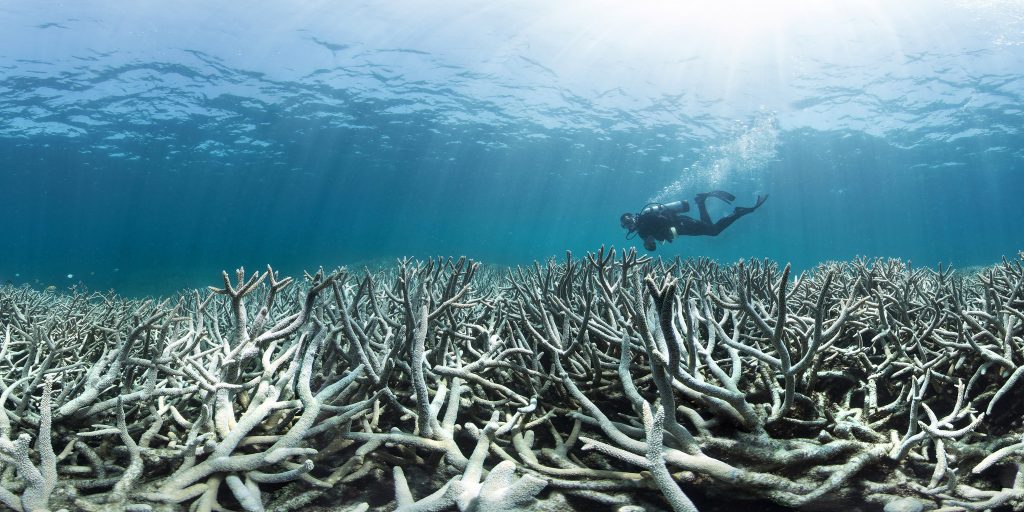2017: Hottest year on record for our oceans

February 6th, 2018
Last month, NASA reported that 2017 was the second warmest year on record. Now, a new Chinese study has found that 2017 was the hottest year on record for our oceans.
Ocean temperatures have been rising over the past decades, with 2017 topping the list as the hottest year in recorded history, according to the Institute of Atmospheric Physics of the Chinese Academy of Sciences. The study found that most parts of all oceans warmed, leading to a 1.7 m rise in the average global sea level last year.
The past five years have been the warmest for our oceans, the study states, with the rise in temperature largely a result of greenhouse gas emissions from human activities. “The human greenhouse gas footprint continues to impact the Earth system,” the study reads.
Measurements of ocean temperatures are more reliable than atmospheric measurements for tracking the state of the Earth’s health, according to the study. Oceans are also less influenced by weather events such as El Niño or La Niña.
The researchers argue that as oceans absorb more than 90 per cent of residual heat related to global warming, their heat content gives a more accurate read of global warming levels.
The results of the study are in line with findings by the World Meteorological Organization (WMO) from last November which found that global ocean heat content in 2017 was at or near record high levels.

Coral bleaching at Heron Island Feb 2016 Photo: The Ocean Agency / XL Catlin Seaview Survey / Richard Vevers
Importance of our Oceans
The oceans are highly important for our climate, absorbing roughly one third of human carbon dioxide emissions in the industrial period, as well as acting as temperature buffers.
A recent study in Science found that rising ocean temperatures have led to massive amounts of coral bleaching over the last decades. Prolonged bleaching ultimately leads to the death of corals and threatens coral reefs, the most diverse marine ecosystem on Earth.
Higher temperatures also threaten marine species such as the male green sea turtles, as a report in Current Biology found recently. Warmer waters result in feminization of the big turtles, as the sex of each individual is determined by temperature during embryonic development.
A decline in ocean oxygen is another result of rising ocean temperatures, posing a threat to many marine species as a recent study in Science revealed.
[x_author title=”About the Author”]






